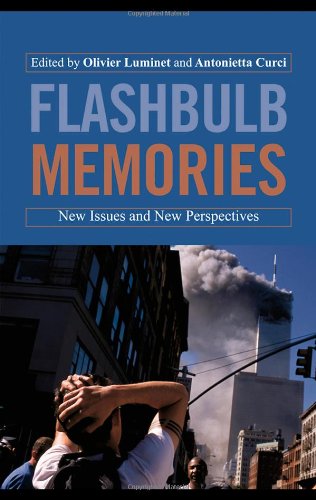

Most ebook files are in PDF format, so you can easily read them using various software such as Foxit Reader or directly on the Google Chrome browser.
Some ebook files are released by publishers in other formats such as .awz, .mobi, .epub, .fb2, etc. You may need to install specific software to read these formats on mobile/PC, such as Calibre.
Please read the tutorial at this link: https://ebookbell.com/faq
We offer FREE conversion to the popular formats you request; however, this may take some time. Therefore, right after payment, please email us, and we will try to provide the service as quickly as possible.
For some exceptional file formats or broken links (if any), please refrain from opening any disputes. Instead, email us first, and we will try to assist within a maximum of 6 hours.
EbookBell Team

0.0
0 reviewsWe all have memories of highly emotional personal and public events that may have happened some years ago but which are felt as strongly as if they happened yesterday. We remember where they happened, the people who were with us, and seemingly irrelevant details such as the weather, particular sounds or specific clothes. Why do we remember these things? Is it because such events are so deeply emotional or so unexpected or because people talk about them so many times? Why are these "flashbulb memories" so vivid and lasting?
Flashbulb Memories: New Issues and New Perspectives explores these questions in the first book on flashbulb memories (FBMs) for more than a decade. It considers the many developments over the last 10 years, including new models of FBM formation, advances in statistical methods and neuroscience, and two key public events, the death of Princess Diana and the September 11th attacks in the US, which can help test FBM. The book examines the status of FBMs as "special" or "ordinary" memory formations, and the expert contributors represent a balance between those that favour each approach. It also investigates controversial topics of research such as:
This book gathers together specialists in the field in order to make significant progress in this area of research which has remained divisive for the past 30 years. It will provide essential reading for researchers in FBM and also be of interest to those in related areas such as social psychology, cognitive psychology, cross-cultural psychology, sociology, political sciences and history as well as clinicians dealing with those who have strong FBMs after personal traumatic events.